
Associate Partners
Clickable map of DPE partners and associate partners
Digital preservation is too complex an issue for individual organisations or even sectors to address independently. Efforts to meet these challenges must be coordinated if they are to be successful.
To achieve this coordination, DPE has developed the opportunity for Institutions to become DPE "Associate Partners". Institutions with experience in activities related to the DPE objectives, and with visibility at national level can act as national representative for the DPE network.
Associate Partners benefit from the possibility of sharing experiences with other partners, international visibility, first access to DPE tools and results, the opportunity to work with DPE to disseminate their expertise to the wider Digital Preservation community, to join expert working groups to help shape the international research and policy agenda and to nominate a representative to attend meetings of the DPE governing board.
Associate Partners should assist DPE to raise awareness about Digital Preservation issues and DPE within their own country and disseminate DPE publications and recommendations, where necessary translating them in their mother language.
Any enquiries concerning Associate Partnership can be sent to:
Maurizio Lunghi Chiara Cirinnà
Associate Partners
- Associazione Italiana Biblioteche
- Biblioteca Nacional de Portugal
- Charles University Computer Centre
- CIB (Centro Inter-Bibliotecario)
- CILEA Consorzio Interuniversitario
- CINECA
- CNR Consiglio Nazionale delle Ricerche
- The Croatian State Archive
- DANS - Data Archiving and Networked Services
- The Directorate-General of Portuguese Archives (DGARQ)
- Faculty of Engineering of the University of Porto (FEUP)
- Faculty of Humanities and Social Sciences
- Health Unit ULSS 8 Asolo (Veneto, Italy)
- The Jewish National and University Library
- Kirtas
- National and University Library (NUK)
- Regione Toscana – Governance-network and information engineering for the regional system coordinating area
- Roskilde Festival
- Vilnius University Library (VUL)
- EPMA - European Projects and Management
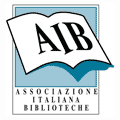
Associazione Italiana Biblioteche
Italy
The Associazione Italiana Biblioteche (AIB) is the professional association of Italian librarians. Founded in 1930, AIB is the only general library association in Italy, the only National Association Member of IFLA, and by far the oldest and largest association from this field in Italy. The aims of AIB's action are so defined in the Statute in force:
- to support the organization and development in Italy of libraries and of a library service taking more and more into account the needs of users;
- to act as a professional representative in all cultural, scientific, technical, legal and legislative spheres, on any matter which may concern a better organization of library and documentation services;
- to promote, support and develop any action useful to ensure a qualified professional education;
- to provide their own members with scientific and technical aids for continuing professional education;
- to contribute in every place to directions and decisions of library policy;
- to promote the observance of the ethical principles of the library profession;
- to defend the dignity and the professional specificity of librarians.
Some of the main activities of the Italian Library Association are:
- active lobbying on behalf of libraries and librarians at the national and regional level;
- international cooperation, especially within the European Union and with Eastern-European and Mediterranean countries;
- management of a Register of Italian professional librarians;
- a Labour Observatory devoted to lobbying and consultancy on labour relations, recruitment of librarians, etc.;
- national conferences, held annually, from 2000 in the Rome Bibliocom meeting;
- a Website (AIB-WEB) and a discussion list (AIB-CUR), with over three thousand subscribers;
- a special Library, founded in 1961, with some 8,000 books, 117 current serials, some manuscript papers, CD-ROMs, grey literature, photographs, etc.

Biblioteca Nacional de Portugal
Portugal
The National Library of Portugal holds the largest historical and cultural bibliographic collection in the country with over 3.5 million items from a wide range of types and genres, both in print and manuscript, spanning from 11th century documents to the personal papers of many Portuguese writers up to the 21st century. Since its foundation in 1796, NLP has acted as the National Bibliographic Agency responsible for legal deposit for the Portuguese National Bibliography, the National Union Online Catalogue - PORBASE, established in 1987, and the National Digital Library, launched in 2002. NLP is also the Portuguese standardization body for information and documentation (the national equivalent to ISO TC46) since 1987 and manages the IFLA UNIMARC Core Activity, since 2003. The Institution is a member of the CENL and The European Library, and since the early 1990s has participated in several European projects contributing to the bringing Portuguese libraries into line with technological advances. Promotion and co-ordination of digitization efforts, and all related management and technical issues, are amongst the NLP priorities for the short and medium term, aimed at supporting preservation of its heritage collections while enhancing global access to Portuguese cultural resources.
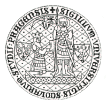
Charles University Computer Centre
Czech Republic
Charles University, founded in 1348, is one of the oldest universities in the world and belongs to the most eminent educational and scientific establishments in the Czech Republic. Charles University is recognised at both a national and international level as outstanding cultural institution due to its scientific and pedagogical results and its unique historical tradition.
The University now contains 17 faculties, 3 collegiate institutes, 6 additional establishments for educational, scientific, research and developmental activities, creative activities and for information services, 5 university-wide facilities and the vice-chancellor's/rector's office as an executive establishment for Charles University management. There are more than 7000 University employees and over 42,400 students in 270 accredited academic programs at Charles University, representing around one fifth of all the students in the Czech Republic. Scientific and research activities form the basis on which the doctoral and master's programs are based at Charles University. The scientific results of Charles University workplaces amount to approximately one third of its total income.
Charles University aims to be recognized as a competitive research university on the world stage and recognizes the importance of international cooperation with prestigious educational and scientific establishments. As such Charles University has entered into 450 bilateral contracts and 170 international partnerships with foreign universities.

CIB (Centro Inter-Bibliotecario)
Italy
CIB (Centro Inter-Bibliotecario) was established in 1990 as a university centre dedicated to the development and the implementation of library automation projects which have been carried out in a cooperative dimension both on a national and international level. CIB hosts and maintains ACNP, the Italian Union Serials Catalogue created in cooperation with CNR (Consiglio Nazionale delle Ricerche). More than 2400 libraries enter their holdings data into the catalogue which contains more than 120,000 records of scientific journals. CIB also hosts and maintains the Bologna National Library Service (SBN) Node Catalogue which contains about 3,000,000 records, includes holdings from more than 200 local libraries and participates in the National Library Service Index.
Late in 2001 CIB started Alma-DL (Alma Mater Studiorum Digital Library), a complex project with the aim of developing an organizational and a technological infrastructure to collect, organize, archive, integrate and provide access to the digital contents that the University acquires or produces and makes available primarily to institutional users and, when possible, worldwide. The DL project has covered the following areas: institutional repositories and e-publishing, digitization, archiving and web publication of rare books and manuscripts owned by the University libraries, metadata and standards, digital collections development and preservation, resources integration and search, information literacy and support services for users, statistical monitoring, users authentication systems and fault tolerance systems. The DL is providing access to theses, course-packages, research publications and pre-prints, digitized rare and ancient volumes, almost all of them open access and through open source software. So far, CIB has coordinated C.A.S.A. (Cooperative Archive of Serials and Articles) and has been partner in AIDA (Alternatives for International Document Availability), two European research projects funded under the Telematics for Libraries call in the EU Fourth Framework.
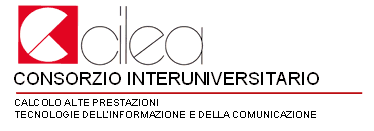
CILEA Consorzio Interuniversitario
Italy
CILEA is a consortium of ten universities in Lombardy, established in 1974. The Italian Ministry of Universities and Research also belongs to the Consortium. Established in 1974, CILEA provides Information and Communication Technology services to universities and related organizations and enterprises.
CILEA works to promote the most efficient and innovative use of the most advanced computing and data transmission systems, to coordinate and develop research and to disseminate the culture of information technology and communication. Besides being involved in many projects in such fields as high performance computing, development of software applications (especially for data analysis), management of important databases of national and international interest and specialised formation in ICT sphere, CILEA offers the management of library and archive automation systems and of digitising operations. CILEA also builds open archives with the OAI technology and in 1998 launched the CDL (Cilea Digital Library) project to make access to scientific literature available on the internet.
In order to manage digital resources, CILEA has developed Codex[ml], an integrated system which performs import, creation, long-term storage, delivery and fruition of digital images and XML documents based on metadata standards like METS, MAG and PREMIS. CILEA is also involved in a project aimed at the development of a system for the persistent identification of cultural resources.
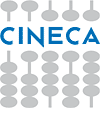
CINECA
Italy
CINECA is a not for profit inter-university Consortium of 32 Italian Universities, the CNR - National Research Council, the National Institute of Oceanography and Experimental Geophysics - OGS, and the MiUR - Ministry of University and Research. Established in 1969, CINECA is currently the most important computing centre in Italy and one of the major sites worldwide. The Consortium's computing environment is equipped with cutting-edge technologies and highly-qualified personnel who cooperate with researchers in the use of the technological infrastructure, in both the academic and industrial fields.
CINECA's institutional mission is to offer support to the research activities of the scientific community through supercomputing and its applications. Since the end of the 1980s, the Consortium has broadened the scope of its institutional mission by gradually embracing all IT sectors, developing management and administrative services for universities and designing telematic systems for the exchange of information between the Ministry of University and Research and the national academic system. In addition to this, again through the use and development of innovative technologies and advanced protection systems, the Consortium supplies advanced services to Public Administration and private enterprises. CINECA also provides the scientific community with advanced graphics-related skills through the Vis.I.T. Lab (VISual Information Technology Laboratory). The Vis.I.T. Lab delivers scientific visualisations, portable and scalable real time applications based on high resolution 3D computer models linked to multimedia contents organized in databases and numerical simulations in order to navigate, explore and inquire effectively into landscape and cultural scenarios.

CNR Consiglio Nazionale delle Ricerche
Italy
National Research Council (CNR) is a government-funded research organization established in 1923. Its duty is to carry out, promote, spread, transfer and improve research activities in the main sectors of knowledge growth and its applications for the scientific, technological, economic and social development of Italy. The CNR Central Library, founded in 1927, is the main Italian scientific library. The Library holds over 1.000.000 volumes (including 100.000 old and rare scientific books), over 10.000 periodicals (5.000 on-line), about 100 scientific and technical databases. The mission of the Library is to collect, catalogue, preserve, promote and make accessible to the public the Italian scientific publishing, submitted under legal deposit. The CNR Central Library contributes to the development of the national library service through projects and research activities. The Library also supports librarians’ professional education throughout the Italian and European library service. Among the main activities carried out by the Library are:
- Acting as Italian ISSN Centre.
- Participation in the activities of technical standardization, terminological review and control of ISO/TC46 as a member of a Technical Committee of Italy's National Standards Body (UNI).
- CDE-European Documentation Centre
- Membership of OpenSIGLE (System for Information on Grey Literature in Europe) that is the open access to SIGLE bibliographical references of reports and other grey literature produced in Europe until 2005.
- Operation of CNR SOLAR (Scientific Open-access Literature Archive and Repository): an open archive created for authors to deposit and make publicly available scholarly documents from all academic fields. These documents should be uploaded either by one of the authors with the consent of the others or by an authorized person on their behalf (publisher, information specialist or librarian, for example). CNR SOLAR ensures the long-term preservation of a deposited document. The free online access to these documents provided by CNR SOLAR is intended to promote the best possible dissemination of research work; the intellectual property remains that of the author(s). Contributors must follow the rules of good usage prevailing in scientific publications - respect and citation of original work. CNR SOLAR is recorded in ROAR (Registry of Open Access Repositories).
- Cooperation with CIB (Centro Inter-Bibliotecario) in managing ACNP (the Italian Union Serials Catalogue).
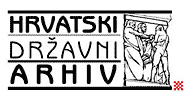
The Croatian State Archive
Croatia
The Croatian State Archives (CSA) is the central archival institution in Croatia and providing archival services to archival and current records created by state and public institutions, stat and corporate enterprises, families and individuals whose activity covers the whole or a greater part of the Croatian territory, or is of State interest.
Founded in 1643 when Croatian Parliament made a special chest of Kingdom privileges in which state charters, laws and privileges were stored, the CSA now holds more then 1,800 funds and collections, or more then 23,500 shelf meters of the records, created from 10th and 11th century until today.
CSA has begun the construction of a new archival information-evidence system ARHiNET. ARHiNET comprises of several modules including: Arranging of archival material, Register books, Archival documentation and evidences and Service for archival records outside archives and User service. The framework of the system's structure represents the Register of archival funds and collections of the Republic of Croatia which is open to the public. All data on archival material, owners and creators of archival records, digital images, as well as full texts of finding aids, transliterations and translations of particular documents can be searched and retrieved in this unique national integrated system.

DANS - Data Archiving and Networked Services
The Netherlands
DANS - Data Archiving and Networked Services - is an institute of the Royal Netherlands Academy of Arts and Sciences (KNAW) and the Netherlands Organisation for Scientific Research (NWO), located in The Hague, The Netherlands. Since its establishment in 2005, DANS has been archiving and making accessible research data in the humanities and the social sciences. To this end DANS develops permanent archiving services and stimulates others to follow suit. One important result of the activities carried out by DANS is the establishment of EASY, a user friendly self archiving system. DANS also provides other services such as offering access to the files of large data collections, both nationally and internationally. In Addition to this DANS takes part in numerous projects to make data accessible or to preserve data for academic research.
DANS is project leader or participant in numerous national and international projects aimed at the long-term preservation of data. An important DANS project is MIXED, in which a permanent format for storage and reuse of data sets is being developed. Two large international projects in which DANS participates with a series of foreign partners are CESSDA PPP and DARIAH.
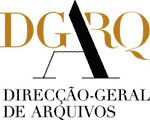
The Directorate-General of Portuguese Archives (DGARQ)
Portugal
DGARQ is a Directorate General accountable for the planning and execution of national archival policy in Portugal. It is a mission of The Directorate-General of Portuguese Archives (DGARQ) to ensure that:
- the Public Administration produces and keeps documentation in order to supply proper and sufficient evidence of its activities, providing organisational responsibility and inheritance memory;
- the documents which hold archival value are classified and preserved as an essential of individual and collective memory, by a factor of national identity and a source of scientific investigation;
- the access to the archives is guaranteed without any discrimination, a proper requirement for the exercise of a responsible citizenship as well as a factor of democracy evolution.
According to its inner Law, published in Decreto-Lei nº 93/2007, of 29th March, DGARQ has attributes to:
- promote the execution of the national archival policy, in agreement with the directions of the Ministry;
- safeguard and value the national archival inheritance, whatever it’s media or format, as a fundamental collective and individual memory and yet by a factor of national identity and a source of scientific investigation;
- promote the quality of the records as a fundamental resource in the administrative area, in order to promote the efficiency of public services towards the citizens;
- safeguard and ensure both the rights of the Nation and the citizens, within the records at its guard.
In the line of its attributes, DGARQ has several competences within its relationship with producing entities and holders of archival inheritance. These competences are of two main kinds:
- of technical and principle kind, carried out over all state archives, local governments and public companies and also over any other sets of documentation classified as a whole in the national archival inheritance;
- of administrative and management kind, which are carried out through its below entities – National Archives and Regional Archives.
DGARQ has in one of its missions the support of all below administrations to set up systems of archive, doing reports about evaluation and selection of documents for permanent conservation, holds, preserves and allows the access to archival inheritance of national interest.

Faculty of Engineering of the University of Porto (FEUP)
Portugal
The Faculty of Engineering of the University of Porto (FEUP) is one of the 14 faculties of the University of Porto, the largest university of Portugal. FEUP works closely with several institutions and agencies of note such as the European Space Agency, IBM, Microsoft and CERN, as well as research universities such as the Massachusetts Institute of Technology, the University of Texas at Austin and Carnegie Mellon.
FEUP is dedicated to its educational programmes and promotes Research and Development through several research units and interface institutes.
FEUP is a pioneer in the development of university information systems. SIGARRA, its integrated system on the Web, has been extended to the majority of the schools in the university and integrates the management of courses, programmes, projects, staff and supporting services. The information system has been developed with a strong concern with the preservation of institutional records.
Several research projects led at the Electrical and Computer Engineering Department have gathered researchers from informatics and information science and cultural heritage institutions to develop archival systems with a strong preservation component. Several projects are ongoing in this area.

Faculty of Humanities and Social Sciences
Croatia
The Faculty of Humanities and Social Sciences (previously known as the Faculty of Philosophy) at the University of Zagreb is one of the largest institutions of higher learning in Croatia. With more than 600 employees, 6,000 students and 500,000 volumes of books and periodicals the Faculty is assuming its new place in the European system of higher education and research. The Faculty traces its roots back to 1669, when the original Zagreb Academy was founded, and in its modern form this school of higher learning has existed since 1874. Because of this tradition, the Faculty is obliged to preserve all of the worthy accomplishments of its predecessors while meeting the challenges of the future and seeking out new solutions.
Department of Information Sciences
The Department of Information Sciences was established in 1981. Today it is constituted out of seven chairs: Archival and documentation science, Book and publishing, Lexicography and encyclopaedica, Library science, Information Science, Museology, and Organization of knowledge. The Department is active in the research in many areas of information and computer science including the Croatian identity in information institutions, knowledge management, records management, Croatian lexicography, machine translation, information processing, e-learning etc. The Department staff also actively participates in several national and international projects and organizes an international conference on the future of information sciences – INFuture.

Italy
Health Unit ULSS 8 Asolo (Veneto, Italy)
In the last three years the Health Unit ULSS no. 8 in Asolo has laid solid groundwork for an intensive and widespread use of digital technologies in both in the clinical and in the administrative domains. Their aim is to make certain services, such as medical reports, e-learning, radiological territorial PACS (Picture Archiving and Communication System), on-line reservations, statements of account for suppliers and medicine flow, available electronically.
In order to address the proper and advanced management of archived data the Health Unit ULSS has organised a Clinical Data Repository through substitutive clinical case files digital recording, enabling on-line consultation of more than 6.000.000 case files. This digital clinical case file repository meets the current regulations concerning the substitution of digital documents for originals.

Israel
The Jewish National and University Library
The Jewish National and University Library serve a threefold purpose: it is the National Library of the State of Israel, the National Library of the Jewish People, and the Central Library of the Hebrew University. As the National Library of the State of Israel, it collects all material published in the country. At the same time, it tries to acquire all publications appearing elsewhere in the world that relate to Israel.
It collects Israeli publications on all subjects, with no distinction as to format, language, age level, literary value, orientation and the like. Apart from being the National Library of the Jewish people, most of whom live outside the State of Israel, it collects books, periodicals, manuscripts, documents, recordings, maps, and pictures that reflect or represent the history of the Jewish people and its culture. This includes material in all the Jewish languages -- Hebrew, Yiddish, Ladino, etc. -- of every place and period. Today its collections of Hebraica and Judaica are the largest in the world. It provides teachers and students with research material in Jewish studies, Middle Eastern and Islamic studies, the history of science, Western history, early Christianity, philosophy, art, musicology, and other subjects. It has a large digitization program covering manuscripts, books, sound and archives. Lately much enriched with the decision to digitise 20,000 hours of ethnographic musical recordings. Founded in 1892 as a world center for the preservation of books relating to Jewish thought and culture, it assumed the additional functions of a general university library in 1925. The Parliament (Knesset) through special legislation established it as the Israel National Library with the statutory authority and independence from the Hebrew University to carry this mission from January 1st, 2008.

Kirtas
Since 2001 Kirtas Technologies has pioneered and perfected the technology used today in quality, high-speed, non-destructive mass book digitization. The company's revolutionary technology redefines digitization of all bound documents, delivering the gentlest handling and the highest image quality with quick handling and few errors. Its unique combination of competencies includes:
- a company-wide mission that revolves exclusively around book digitization, not just scanning
- expertise in collecting and creating extensive metadata ensuring that books can be easily searched and recreated in any form (digital, printed, Braille, e-book, large print, etc.) at any time
- patented and award winning automatic book scanners (APT BookScan) that enable the fast, high-quality and gentle scanning of bound books
- unique and proprietary image processing software (BookScan Editor) designed exclusively for high quality end-to-end digitization of books including the ability for optical character recognition, creating searchable files in over 170 languages
- the ability to prepare rare, unique and out of copy collections and make them available through retail book channels, and
- strict processes and quality controls.
Kirtas' philosophy is to enable the rapid and economical mass digitization of books and bound documents at a level of quality that will stand the test of time.

National and University Library (NUK)
Slovenia
The National and University Library (NUK) of Slovenia was founded in 1774 and serves as the central library in the national library system. The national library it undertakes the collection, cataloguing, conservation, access to and preservation of the national written cultural heritage, submitted under legal deposit and other 'Slovenica' publications, published abroad. With its joint role of national and university library it provides access to and information on foreign-language publications and e-resources, builds reference collections in all branches of knowledge, and in-depth collections in humanities and social sciences. As a research library and national centre for library network development NUK co-ordinates the university library system and carries out extensive research activities in the development of excellence, in both the university library and national library network.
NUK's total collections comprise some 2.5 million items. In 2005 the Digital Library of Slovenia was launched, a web portal providing access to digitised knowledge and cultural treasures, based on digitisation of materials, held by NUK. It provides a free search of resources and ready access to digital items such as journals, books, manuscripts, maps, photographs, music and reference materials. A number of projects are being carried out with the aim of creating a modern, accomplished, user-friendly and simple-to-use digital library, which takes into account long-term preservation of most precious collections in the field of cultural heritage, providing access to these to the wider public.
NUK is a member of several international organizations and associations. In addition, it co-operates with many national libraries to strengthen professional commitment and exchange of views. Their work with CENL (Conference of European National Librarians) and IFLA (International Federation of Library Associations and Organisations) are of particular interest. NUK is also a founding member of The European Library service.
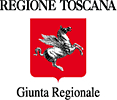
Regione Toscana – Governance-network and information engineering for the regional system coordinating area
Italy
The Regione Toscana is a regional public body, which was established in 1970 but started to operate only in 1972. Its organization consists of 8 General Departments in order to administrate the region in a more effectively way.
The Governance-network and information engineering for the regional system coordinating area, as part of the General Department for administration and information system, is in charge for the whole ICT sector by fixing a strong relation with its territory, especially with its local public authorities.
The Coordinating Area in particular:
- coordinates the development of the information’s society and the learning into the regional system through the RTRT (the data-processing network of the Regione Toscana). It especially introduces the new technologies to the Tuscany citizens, promotes on line services and implements facilities for the simplification of the territory’s administration and the technological innovation;
- develops the information system and the technologies for the communication system of the Regione Toscana;
- coordinates the spreading of the data processing facilities, solutions, innovative services throughout the promotion of the e-government projects (riuso), which has been already realized, all over the region, in particular those such as Sportello Unico per le attività produttive (bureaucratic procedures of production activities), URP (citizen bureaucratic information office), Geographic information office, Servizi sociali alla persona (information office per social services);
- is responsible for the development of the regional statistical system, through the processing of the official public statistical data;
- promotes the realization of data processing systems for documents’ supplying to all the tuscan public local authorities;
- works constantly to the development of the services for the information supply to the citizens through data processing by conducting the Citizen’s information office (URP);
- supplies its documental support to the regional offices throughout the coordination of the libraries and all the documental sectors of the Regione Toscana.

Roskilde Festival
Denmark
Roskilde Festival is an annual music festival with an international audience. The festival is organised by a non-profit humanitarian organisation with approximately 25,000 volunteers. All profits from the festival are donated to national and international humanitarian and cultural purposes by The Roskilde Festival Charity Society.
Originally inspired by the famous festivals at Newport, Isle of Wight and Woodstock, Roskilde Festival has been a playground for contemporary music since its foundation in 1971. Today, more than 75,000 people from all over Europe visit the festival every year.
All documents from Roskilde Festival's history have been carefully filed, thus forming a perfect time capsule for the history of international youth culture, as well as the history of the local community in Roskilde. Even more importantly, the archive also traces the history of rock and global music in all its aspects.
In 2006, Roskilde Festival established an archive project in order to make its vast collection accessible to the public. The archive has initiated an electronic/digital registration of all files including audiovisual and paper documents.
The majority of incoming material in recent years has been digital, which leaves the archive facing the problem of digital preservation for long term access. However, the festival is taking up this challenge and finding ways to establish a long-term protection policy.
Roskilde Festival is a part of the Roskilde Group.
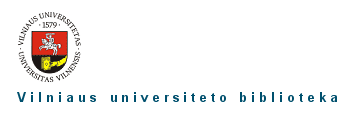
Vilnius University Library (VUL)
Lithuania
Vilnius University Library (VUL), established in 1570, has a community of over 26000 of readers and holdings totaling over 5.38 million items dating from the 13th century to the present day. The mission of the Vilnius University Library is to cooperate at a European level to participate in the creation of an information society and provide its university community with information resources necessary to prepare the highly qualified specialists needed to gather, preserve and make publicly accessible Lithuanian documentary heritage
The Manuscript Department of the VUL possesses over 255 567 manuscripts and documents dating from 13th century up to now. The Old and Rare Book Department, with over 178 449 books, periodicals and minor publications dating from the 15th to 18th century and rare valuable publications from the 19th and20th centuries. The Collection of Graphic Arts - 91 000 items is the oldest and richest collection of such works in Lithuania and VUL is the only Library in Lithuania that continues to collect items of graphic arts. The Museum of Sciences has accumulated an extensive collection of coins of the Grand Duchy of Lithuania, a historical collection of graphic prints, a collection of VU diplomas, seals, medals, iconography, original documents with autographs of Lithuanian, XVII-XVIII c. manuscript books.
The Restoration Department was established in 1968 and is at present the largest library subdivision of this kind in Lithuania. The digitization policy of VUL has two major goals to preserve cultural heritage and promote collections of cultural importance.
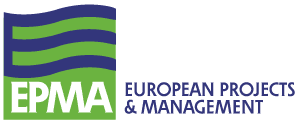
EPMA, European Projects & Management Agency
Czech Republic
EPMA, European Projects & Management Agency, is a non-profit organization, co-founded by the Czech Region Vysocina and BMI Association as a public equivalent body in 2004. The main objective of EPMA is to develop international project based co-operation of European regions and regional partners towards knowledge based information society.
This objective is implemented through activities like research, awareness rising, project management support and networking with a desire to strength a dialog and co-operation between public administrations, research communities, business organizations and civic initiatives.



